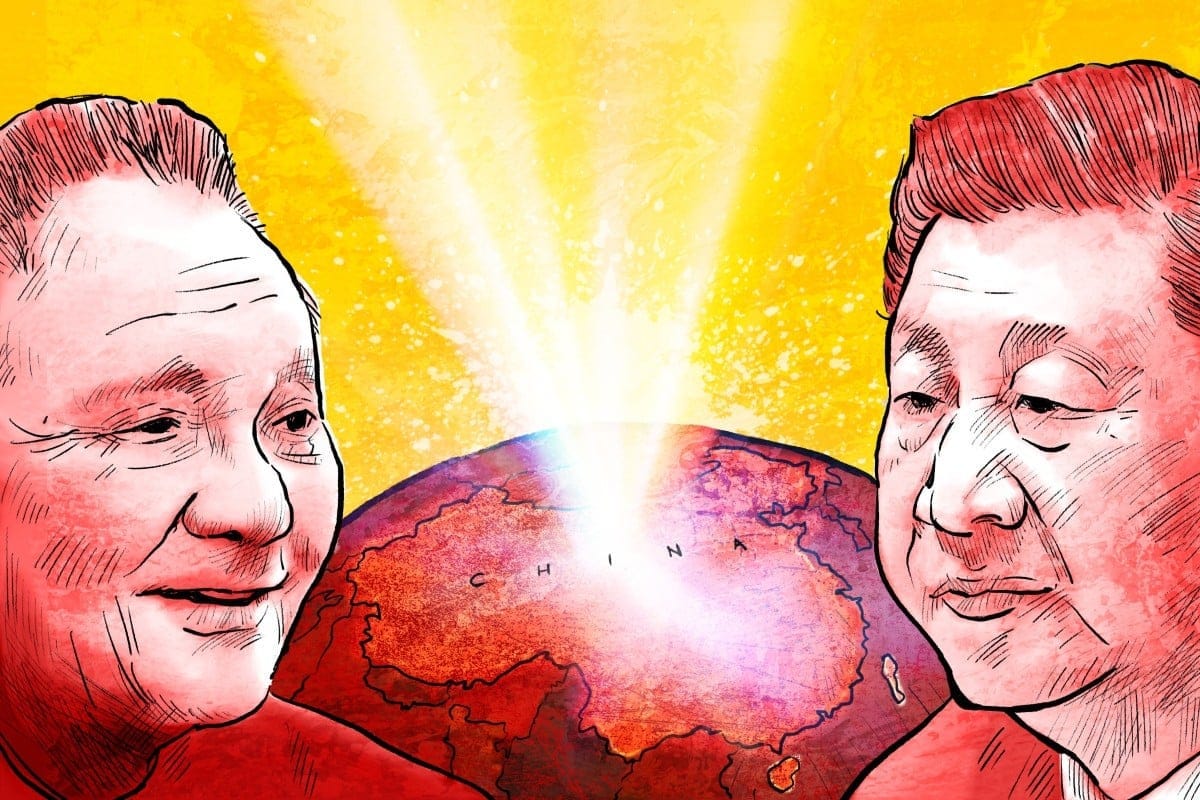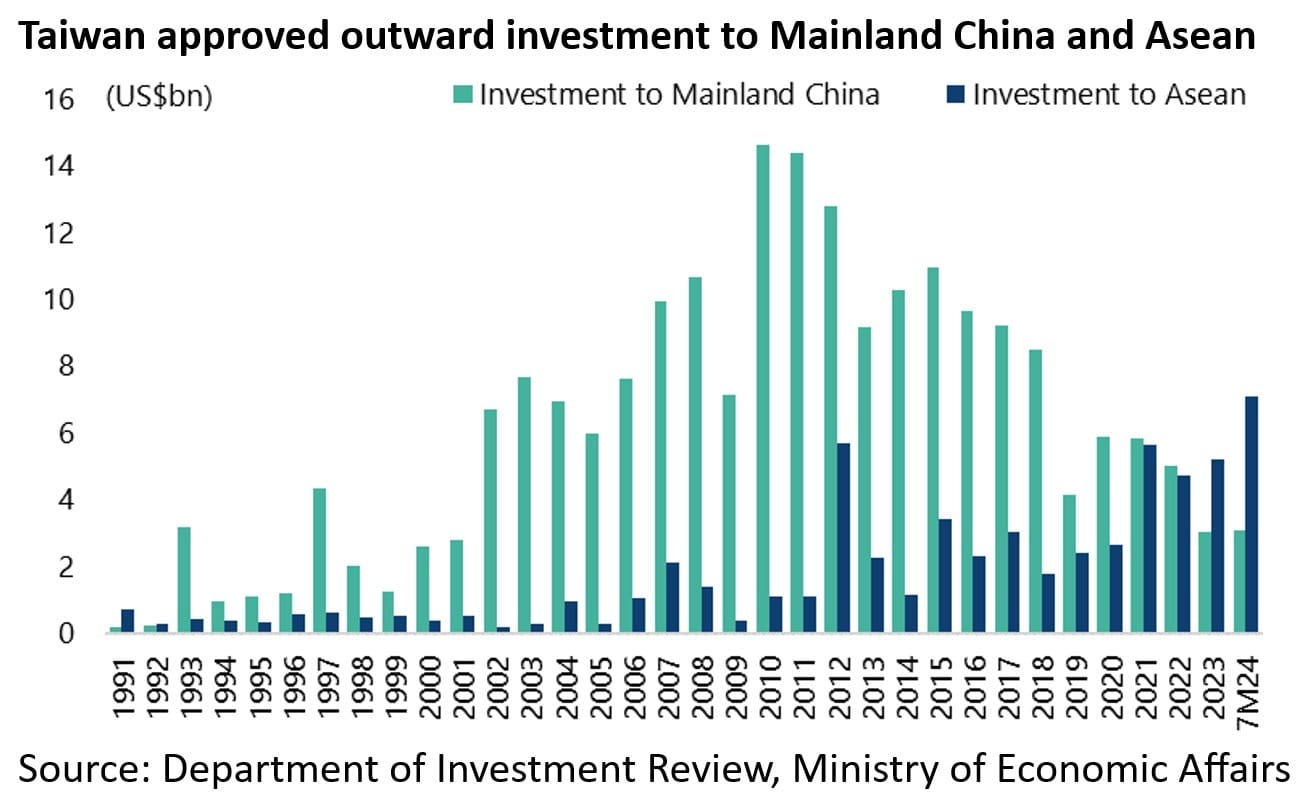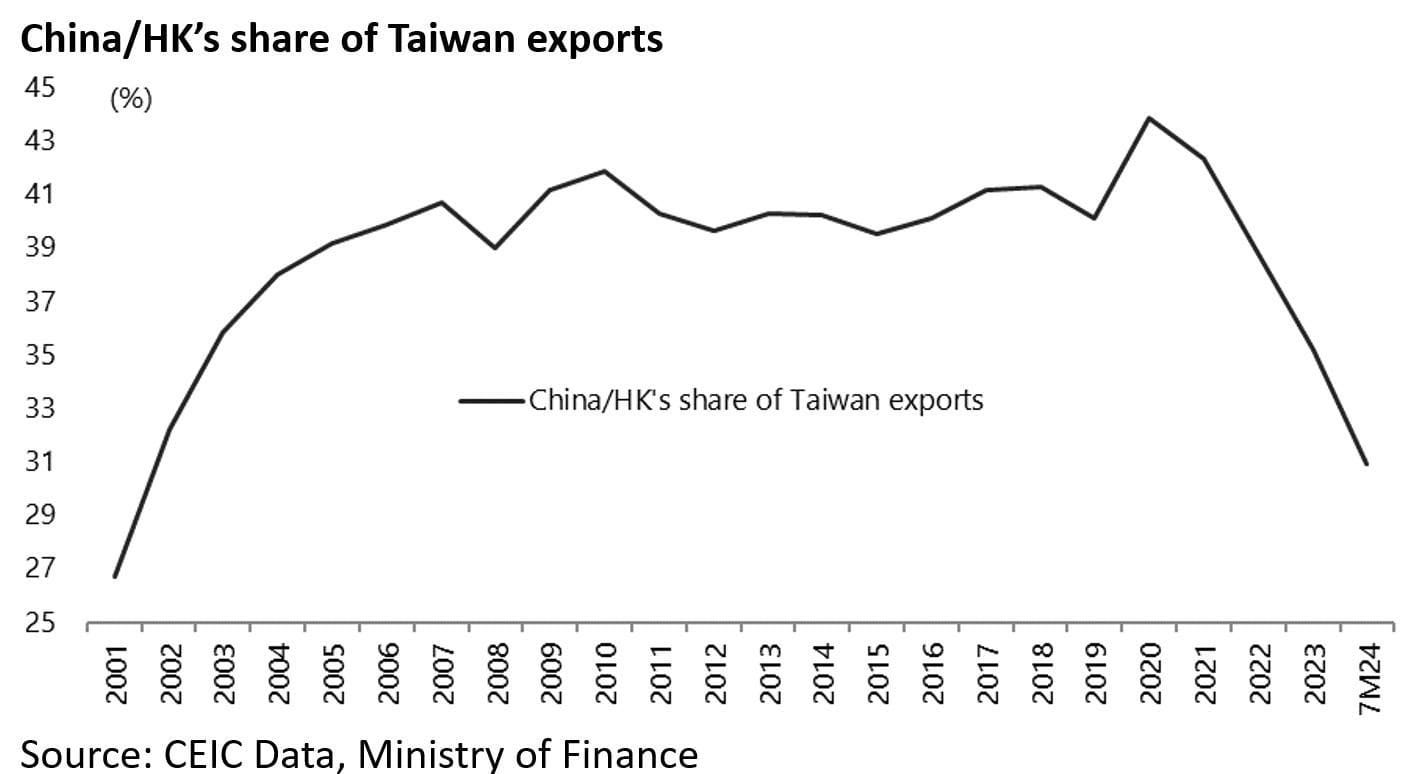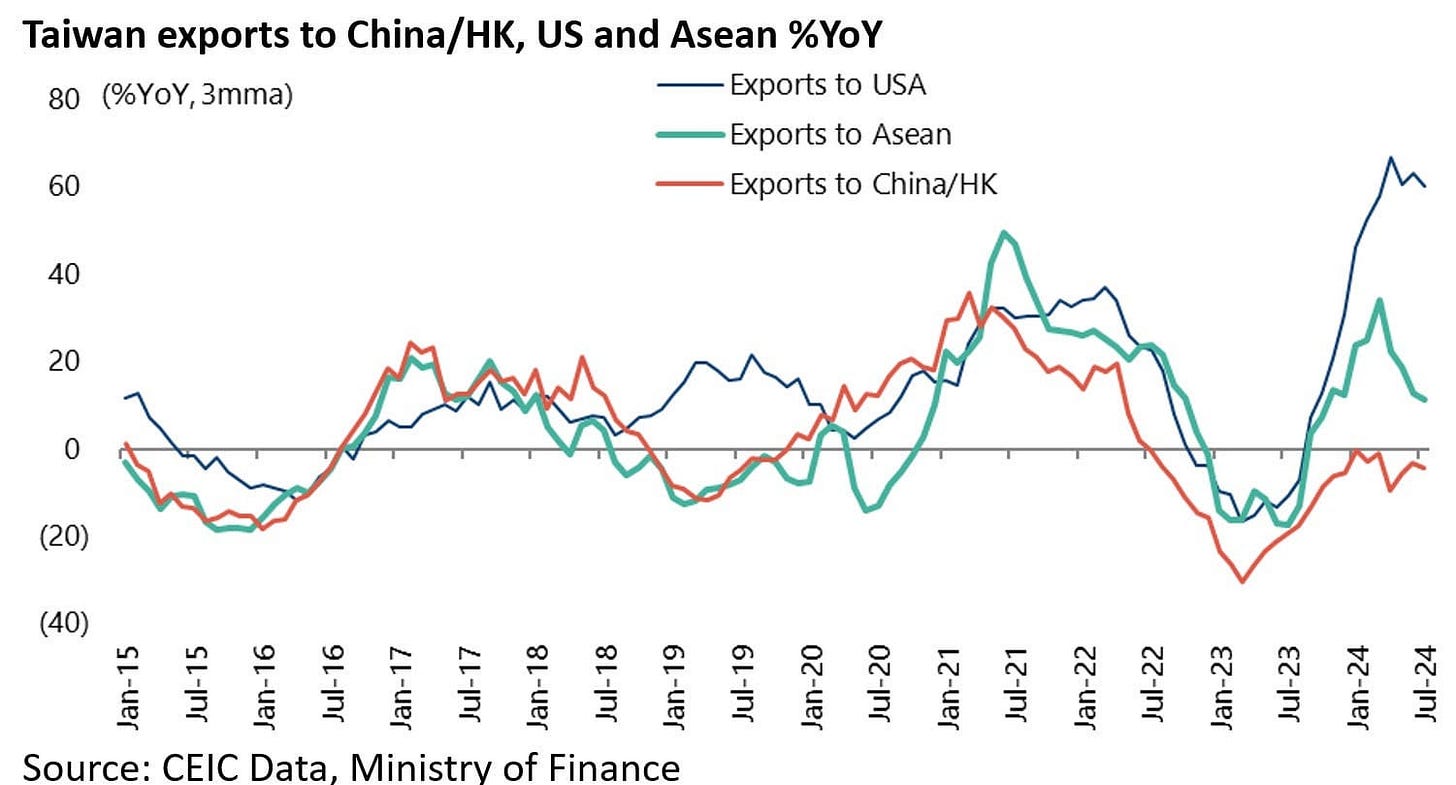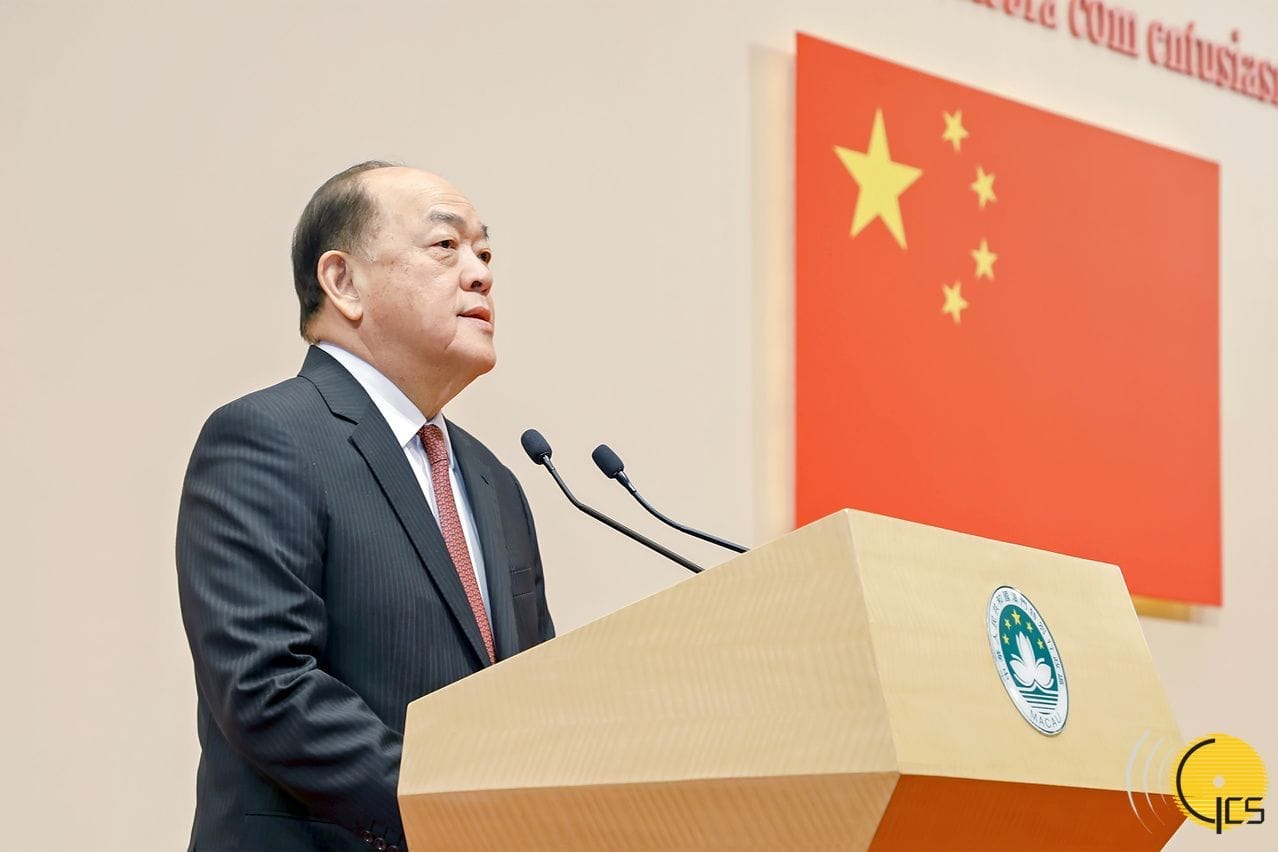"Future Pandemics, China's Diplomatic Moves to Moscow, and Deng Xiaoping's Enduring Legacy"
This edition of De/Cypher provides a concise overview of China's evolving political and economic landscape. We examine the future of pandemics, China's partnerships with countries such as Fiji and Russia, and the impacts of Chinese migration.
China Quote
“Deepening the reform of the science and technology system is an inevitable choice to enhance national competitiveness and respond to external risks and challenges…The international situation is severe and complex, and China's development faces many challenges, such as external attempts to create technological barriers and sever global innovation and industrial chains. The competition between nations is essentially a competition of strength, with the key being the competition of scientific and technological innovation capabilities, and the underlying contest being whose system is more superior...”
-Yin Hejun, Minister of Science & Technology, in an Editorial This Week, (Sinocism)
De/Cypher Data Dive📈
China has long dominated the global market for critical minerals. China imposed mineral restrictions in August and December 2023, widely interpreted as a response to U.S.-led measures limiting Beijing's access to advanced chips and AI technology. However, exports of critical minerals are starting to return to normal levels.
Asia View🌏: The Future of Pandemics in the World Today
Written by Priyanka Garodia, Geopolitical Research Analyst - South Asia
The world came to a stop due to the Covid-19 pandemic in 2020. The onset of the Pandemic exposed the vulnerability of the world population to disease and infection and brought attention to the failure of governing systems in dealing with a health crisis of this magnitude. The pandemic and its response brought to the fore the lack of strategic attention paid to public health in conceptualizing ‘national security’. As countries reeled with a lack of policy measures, infrastructure, and the failure of public health systems, the urgency to develop more robust mitigation mechanism was felt across the globe. This meant understanding biosecurity and its intersections with policy, technology and ecology to create measures that would be essential safeguards against the next biological threat.
Biosecurity and a Resilient Framework
“Biosecurity refers to the measures taken to protect human, animal, and plant health from biological threats, whether they are natural, accidental, or intentional.” The reactive nature of the world when dealing with health crises, clearly indicate that the concept does not find much ground when compared to other forms of security. The need of the hour is to reevaluate the national security of countries to be informed by the strategic relevance of biosecurity issues. Biological threats whether manufactured or natural, has the ability to cause severe damage to nations including the disruption of economic activities, eroding trust in governments and destabilizing the nation on a whole. The Covid-19 pandemic is a prime example of this as it not only killed millions of people worldwide, but it also led to economic decline, social unrest and geopolitical stress. Thus, the importance of biosecurity in conceptualising national security must be credited with some importance to prevent such threats from causing widespread damage.
A resilient biosecurity framework includes the right measure of surveillance and early detection, followed by strengthening rapid response measures, building public health infrastructure and fostering a spirit of global collaboration to include ecological calculations in national security measures. Well-equipped health care officials, stronger international treaties and organisations and investment in research and development will be crucial to increasing the preparedness of the world in dealing with future pandemics.
The Present Situation
However, such measures while important are not on the agenda of most countries. Public spending on vaccines, health care measures and global distribution systems remains abysmally low and if estimates were to be believed, would require nearly a decade to develop. Secondly, despite the lack of strong response policies during Covid-19, the World Health Organisation (WHO) and other countries do not have substantial response measures for a pandemic still. The Coalition for Epidemic Preparedness Innovations (CPI), a foundation that works to accelerate vaccine production and distribution in times of crisis has laid out five ways in which rapid vaccine productions can be achieved. These include creation of a library of prototype vaccines for various virus types, conduction clinical trials, identifying immunity response markers, building a global supply chain and finally strengthening surveillance and early warning systems. While this is a thorough roadmap for action, the lack of will to implement these measures is being noted.
National Security and Non-Traditional Threats
The evolution of national security has seen the concept shape into a broad concept that encompasses various domains. Given the lens adopted by a country in viewing the world one can interpret national security measures to meet certain objectivities of safeguarding a country's identity, territorial integrity, values, institutions etc. Traditionally this meant to maintain high levels of military preparedness in anticipation of an external attack. However. a more comprehensive understanding of national security must include military, economic, environmental, societal, and political threats to a state. These threats can arise from various sources and not simply other states. The Covid-19 pandemic was a stark reminder that biological agents and pathogens could prove to be as grave as a military attack.
Conclusion
Thus, the need of the hour is for governments to redefine their strategic interests to include primarily vaccine research and production in defining their national security needs. Conducting studies on influenza and coronavirus vaccines to create an effective vaccine that protects people from multiple viruses and offer more ‘durable’ protection against a future pandemic. The networks of vaccine dissemination should be developed to be more efficient and rapid, while ensuring uninterrupted supply globally. The Covid-19 pandemic was a stark reminder of the problems of the pandemic preparedness system of the world. It is crucial for states to understand that to prevent a pandemic in the future, a proactive strategy to biosecurity is more important than reactive measures. Comprehensive national security that includes non-traditional sources of threat should be given the same importance as military preparedness and development.
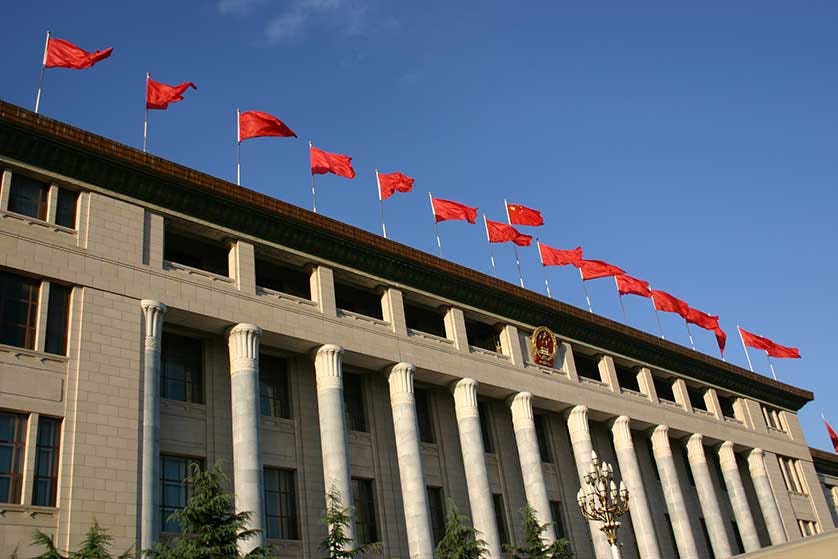
Quick China: Unmissable Stories 📜
Chinese Chipmaking Import Touches 26 Billion, US mulls new restrictions but after NSA Sullivan concludes his China visit possibly next week
Chinese firms imported almost $26 billion worth of chipmaking machinery, according to fresh trade data released by China’s General Administration of Customs this week. That surpassed the previous high mark in 2021 and comes as American, Japanese and Dutch officials work on increasing restrictions on Chinese companies.
Chinese purchases from firms such as Tokyo Electron Ltd., ASML Holding NV and Applied Materials Inc. have soared in the past year. During the period, Chinese companies bought more lower-end equipment after the US and its allies tightened controls on their access to the most cutting-edge technology. That spending spree has helped drive Dutch exports to China to new highs, exceeding $2 billion in July for only the second time on record. (Bloomberg)
Australian Senate Unanimously Passes Urgency Motion on UN Resolution 2758
Today the Australian Senate unanimously passed an urgency motion concerning United Nations General Assembly Resolution 2758. This motion, led by Senators David Fawcett and Deborah O’Neill, firmly rejects Beijing’s misinterpretation of the resolution and international law regarding Taiwan’s status.
Senator Deborah O’Neill stated, “Taiwan is a leading Indo-Pacific democracy and an important partner for Australia. We share with Taiwan a commitment to an open, inclusive, and stable Indo-Pacific region.”
Senator David Fawcett highlighted the impact of the People’s Republic of China’s intimidation tactics, warning that their distortion of UN Resolution 2758 “would weaken the UN’s integrity and increase challenges to the international rules-based order.”
Senator Raff Ciccone reaffirmed Australia’s “long-standing and bipartisan One China Policy” while also highlighting Australia’s commitment to maintaining “close and official ties with Taiwan.”
Senator Claire Chandler stressed the urgency of the matter, stating, “This is of great concern for peace and security in our region. We must be clear-eyed about the Chinese government’s stated intentions and their aggressive and dangerous behavior.”
Senator Simon Birmingham called for an end to the escalation of military activities targeting Taiwan, emphasising that such actions have “no justification” and warning that they “risk instability, miscalculation, or misadventure.”
Senator Linda Reynolds underscored the importance of standing with like-minded democratic nations against present threats.
This motion follows the launch of the 2758 Initiative at #IPACTaipei24, where delegates pledged to pass similar resolutions in their own parliaments to reject China’s distortion of UN Resolution 2758 and to support Taiwan’s claims for meaningful participation in UN agencies and beyond. (IPAC)
China Banks Become Surprise Winners of Frenzied Hunt for Yield
Just this week, shares of Agricultural Bank of China Ltd. — one of the big four banks — climbed to a record in Shanghai, while Bank of China Ltd. reached the highest level since the nation’s 2015 equity bubble. The upward momentum helped the CSI Banks Index advance 19% so far this year, compared with a 3.2% decline in the broader benchmark.
Almost every member of the banking subgauge has touched a 52-week peak at some point in 2024, according to figures compiled by Bloomberg, as traders flock to lenders for sanctuary. Each of the big four state-owned banks, which also includes Industrial & Commercial Bank of China Ltd. and China Construction Bank Corp., are on track to outperform the CSI 300 Index by the most since at least 2021. (Bloomberg)
China and Russian Vice-Premiers Meet Each Other During PM’s conference
Vice Premier co-chaired the 28th meeting of the China-Russia Prime Ministers' Regular Meeting Committee in Moscow with Russian Deputy Prime Minister and Chairman of the Russian side of the Committee, Chernyshenko. (Sinocism)
48000 Chinese Students in Russia, 16000 Russian Students in China
There were 48,000 Chinese students, excluding those of preparatory faculties, studying in Russia in the 2023-2024 academic year, said Russian Deputy Prime Minister Tatyana Golikova on Monday. This was almost 10,000 more than a year earlier, Golikova noted during the 25th session of the China-Russia Committee on Humanities Cooperation in Moscow. Golikova also said that more than 16,000 Russian students were studying in Chinese universities. (TASS)
World’s First AI Model for Seismic Data Released
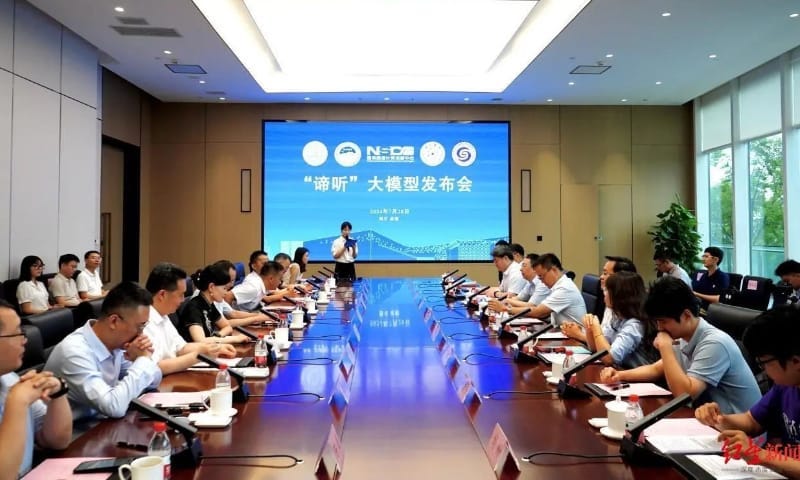
DiTing, the world's first professional seismic data processing model with 100 million parameters, was released in Chengdu, Sichuan province southwest China, in late July, and will be publicly tested by the end of 2024. The one billion parameter version is expected to complete pre-training in August 2024.
As an AI model, DiTing is based on one of the biggest data sets in the world and can be used to spot earthquake signals, monitor seismic activity and support rapid responses to earthquakes, according to its developers. The model was developed by the National Supercomputing Center in Chengdu in cooperation with the Institute of Geophysics of the China Earthquake Administration and Tsinghua University, Xinhua reported.
Guo Li, chairman of Chengdu Supercomputing Center Operation Company, said the model with 100 million parameters can already be used to make earthquake predictions. Chen Shi, deputy director of the Institute of Geophysics, China Earthquake Administration, said, "Based on the massive data of China earthquake observation network, the large AI model has significantly improved the accuracy and speed of seismic signal recognition." Seismology is an observational science and breakthroughs often come from a deep understanding of observational data.(ST Daily)
The Taiwan Supply Chain is Shifting Away from China
If reshoring looks to have peaked, there is mounting evidence of supply chains shifting away from China. Taiwan companies invested more in Southeast Asia than in China in 2023 for the first time since 1992. Taiwan’s outward investment to mainland China declined from US$5.05bn in 2022 to US$3.04bn in 2023 and US$3.07bn in the first seven months of this year. By contrast, outbound investment to Asean rose from US$4.73bn in 2022 to US$5.23bn in 2023 and US$7.1bn in January-July 2024.
China (including Hong Kong) accounted for 30.9% of Taiwan’s exports in the first seven months of this year, the lowest level in 23 years. This compares with an average share of 40% between 2006 and 2019.
Exports to China and Hong Kong declined by 3.9% YoY to US$81.8bn in January-July 2024 with exports of semiconductors and electronic components particularly weak, a decline which also reflects continuing American restrictions on selling advanced semiconductors to China. Electronics exports to China/HK declined by 8.6% YoY to US$49.6bn in January-July. By contrast, in the same period exports to the US rose by 62% YoY to US$63.6bn and to Asean by 19% YoY to US$48.7bn. (Chris Wood, Grizzle Quant)
EU Plans 9% Tariff on Tesla Cars as China EV Probe Advances
Tesla imports from China into the EU will be subject to an additional 9% tariff, while the bloc lowered previously proposed levies for Chinese manufacturers. The new duties are on top of the 10% that exporters from the country are already paying. (Bloomberg)
China launches anti-subsidy probe into EU dairy products as trade spat escalates
China has launched an anti-subsidy probe on dairy imports from the European Union, adding to its targets in the bloc’s agriculture industry as trade tensions between the two sides percolate.
The investigation into certain dairy products from the region is expected to end within a year, according to a statement from China’s Ministry of Commerce. The move follows an anti-dumping probe on the EU pork industry announced in mid-June, a sector that counts China as its top export market.
Although the trade measures only target a few dairy products including fresh and processed cheese, the move shows how Beijing is countering after the EU launched additional tariffs on electric cars shipped from China. Food and agricultural goods are often singled out for trade barriers. (Euronews)
Macao leader says he will not seek another term due to health reasons
Macao leader Ho Iat Seng announced Wednesday he would not seek another term due to health reasons, less than two months before the election for the top official of the casino city.
Ho said in a statement that he has deep feelings for Macao and has done his best for the development of the semi-autonomous Chinese city, neighboring Hong Kong, since he began his five-year term in 2019.
"However, due to my health not fully recovering, and for the long-term development of Macao, I have decided not to participate in the sixth election for the Chief Executive," he said.
He did not elaborate on the reasons for his decision but thanked Beijing and the people in the former Portuguese colony for their trust. (Voice of America)
China May Let Local Governments Sell Bonds to Buy Homes
Beijing may allow local governments to fund purchases of unsold housing by issuing special bonds, people familiar said. The debt can now only be used for infrastructure and environmental projects. (Bloomberg)
China Celebrates 120 Years of Deng Xiaoping, the Chinese Internet uses it to air views on reform
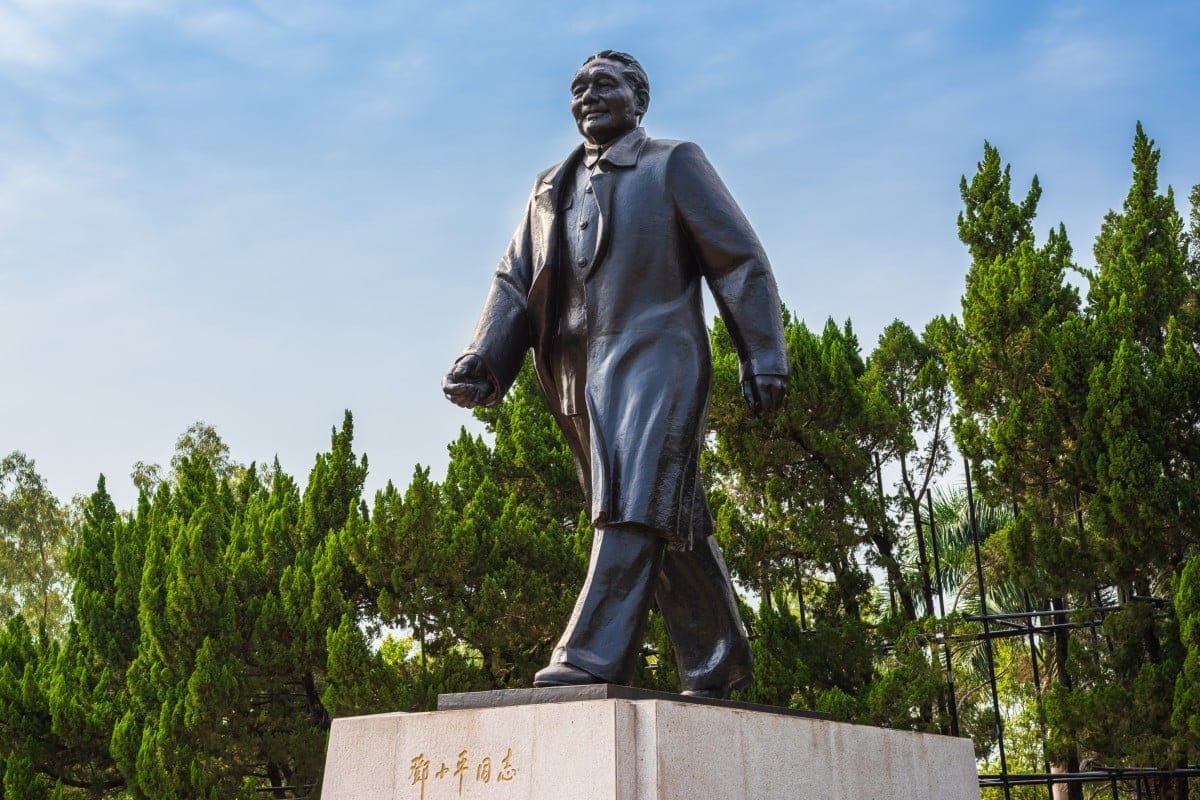
A critical article by one of China's most prominent liberal economists and a professor at Peking University, Zhang Weiying, was twice deleted by Chinese internet censors on Thursday, after being widely circulated on social network WeChat.
The article, originally published in 2018 and recirculated on Thursday, praised Deng for his courage to embrace market forces at the cost of state planning and act boldly on reforms while trying to "cross the river by feeling the stones".
Its tone reflects broader disappointment among China's liberal economists over the slow pace of reforms. Others, in articles which have not been taken down, also used the Deng anniversary to air their reformist views. (The Strait Times)

Beyond The Great Wall 🧱
Exploring News About China in Depth
Economy
China Seeks to Heat Up Economy with US$28 Billion Nuclear Power Investment

Alice Li writes in SCMP that China has approved five new nuclear power projects, totalling over 200 billion yuan (US$28 billion), as part of efforts to stimulate the economy and achieve its annual growth targets. The projects, involving 11 reactors, are spread across Shandong, Zhejiang, Jiangsu, Guangdong, and the Guangxi Zhuang autonomous region and were approved by Premier Li Qiang. This is the largest number of units approved since 2019, reflecting China’s commitment to expanding its nuclear power infrastructure as it seeks to balance economic growth with its carbon neutrality goals.
China Bond Trading Collapses Amid PBOC Crackdown on Record Rally
Bloomberg reports that China's efforts to curb a record bond rally have led to a sharp decline in trading activity, with volumes dropping by about 90% over the last two weeks. The People's Bank of China (PBOC) has increased regulatory actions, including warnings against "illegal" trading, to manage speculation. However, this has raised concerns over the bond market's stability and its ability to effectively discover prices, as trading slumps could lead to further market deterioration.
China Vows to Strengthen Key Social Security Fund Amid Ageing Population
Ji Siqi writes in SCMP that China has committed to expanding its 2.88 trillion yuan (US$402 billion) social security fund to better support its ageing population. The National Social Security Fund plans to increase investment in the domestic capital market, particularly in strategic sectors, to solidify its role as a critical component of the country's social security system, according to Ding Xuedong, party secretary and vice chair of the fund.
China’s Xinjiang Party Chief Ma Xingrui Meets Top Temasek Executives from Singapore
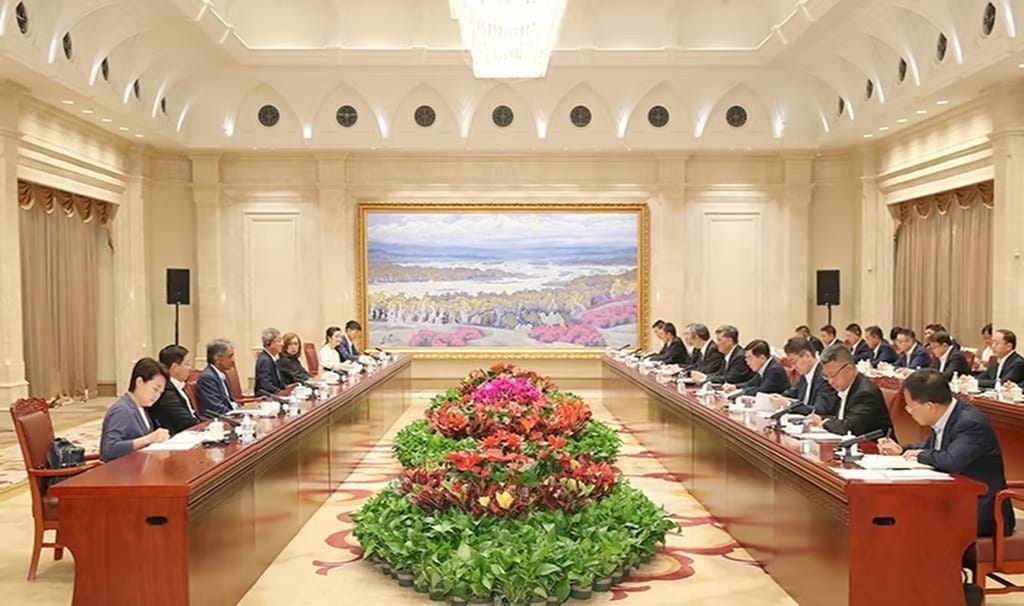
SCMP reports that Ma Xingrui, the Communist Party chief of Xinjiang, held talks with Temasek's chairman Lim Boon Heng and CEO Dilhan Pillay Sandrasegara in Urumqi. The discussions focused on boosting foreign investment in Xinjiang's energy sector, covering both traditional energy sources like oil and gas, as well as renewable sources such as wind and solar power. Xinjiang has seen significant growth in new energy installations, positioning itself as a key player in China’s energy landscape.
Price War and Weak Demand Leaves Half of China’s Car Dealers in the Red
Yu Cong and Denise Jia report in Caixin that China's automobile industry has struggled in the first half of 2024, with a significant number of car dealerships experiencing losses. A survey by the China Automobile Dealers Association highlighted that price cuts by manufacturers and weakened consumer demand have led to a sharp decline in dealer satisfaction, which has dropped to its lowest point since 2013. The report underscores the challenging conditions faced by the sector amidst ongoing economic pressures.
Shein sues Temu over copyright infringements as legal feud heats up
VOA reports that online fast-fashion giant Shein has filed another lawsuit against competitor Temu, accusing the China-founded shopping platform of stealing its designs, copying its product images and engaging in other types of fraud.
The complaint filed in a Washington federal court this week alleges that Temu, which has grown in popularity in the U.S, has subsidized its low prices by encouraging sellers to offer counterfeited items, stolen designs and sub-standard products.
Internal Politics 🏛️
Xi Hails Olympians for Winning Glory for Country
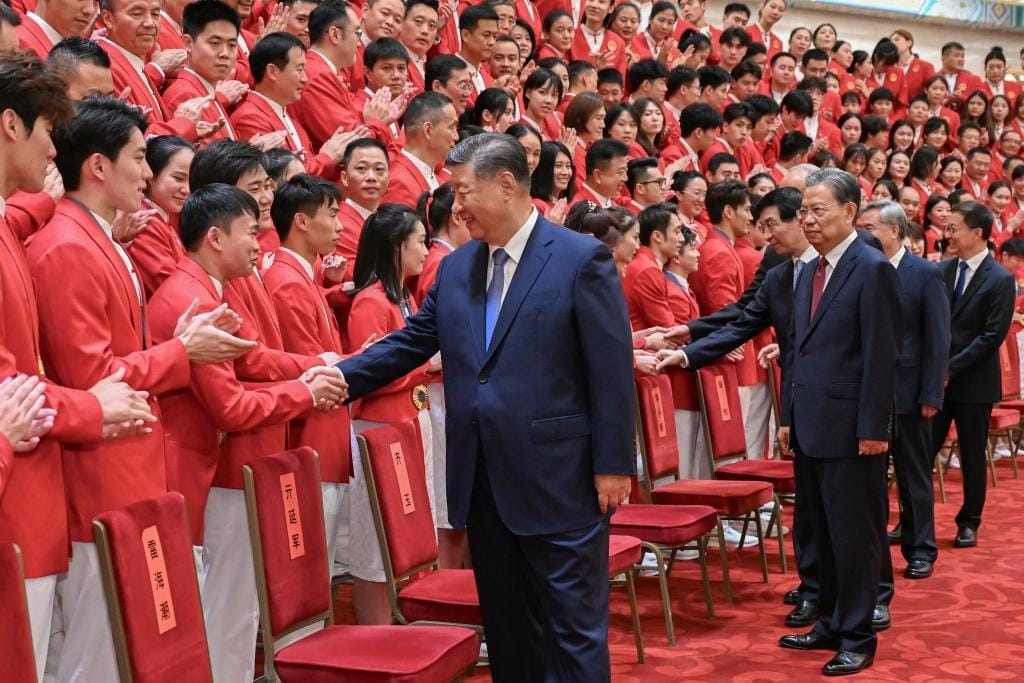
Xinhua reports that President Xi Jinping praised Chinese Olympians for their outstanding performance at the Paris 2024 Olympics, where Team China secured 40 gold, 27 silver, and 24 bronze medals. Xi lauded the athletes for demonstrating China's growing national strength and cultural heritage. He urged the Olympians to continue striving for excellence in competitive sports and contribute to building China into a global sports powerhouse and a healthy nation.
A Gruesome Corpse Scandal Sparks Outrage in China
The Economist reports that a crime ring in China stole and dismembered over 4,000 corpses between 2015 and 2023, selling them for use in manufacturing bone grafts. The scandal, which generated around 380 million yuan ($53 million), has caused public outrage, with families receiving incomplete or fake cremated remains. The government has stifled discussion of the scandal, raising suspicions about potential official involvement.
Chinese Card Game Turns Political
James Palmer writes in Foreign Policy that the popular Chinese card game guandan has come under fire from the Beijing Youth Daily for allegedly fostering corruption among officials. The game, once praised for its strategic complexity, is now accused of creating cliques and enabling corrupt relationships within the Chinese Communist Party (CCP). The controversy highlights the informal politics that underpin the CCP, where personal connections often override formal hierarchies.
Cancer Expert Expelled from Party for Corruption
China Daily reports that Li Jingquan, a prominent cancer researcher and former director of the First Affiliated Hospital of Hainan Medical University, has been expelled from the Communist Party of China for serious disciplinary violations. Li was found guilty of abusing his authority for personal gain, including receiving illegal gifts, intervening in procurement processes, and benefiting from engineering projects. Despite his academic achievements, Li’s actions have led to his removal from all public positions and an ongoing investigation.
China's Postal Delivery Industry Faces Espionage Threats, Ministry of State Security Warns
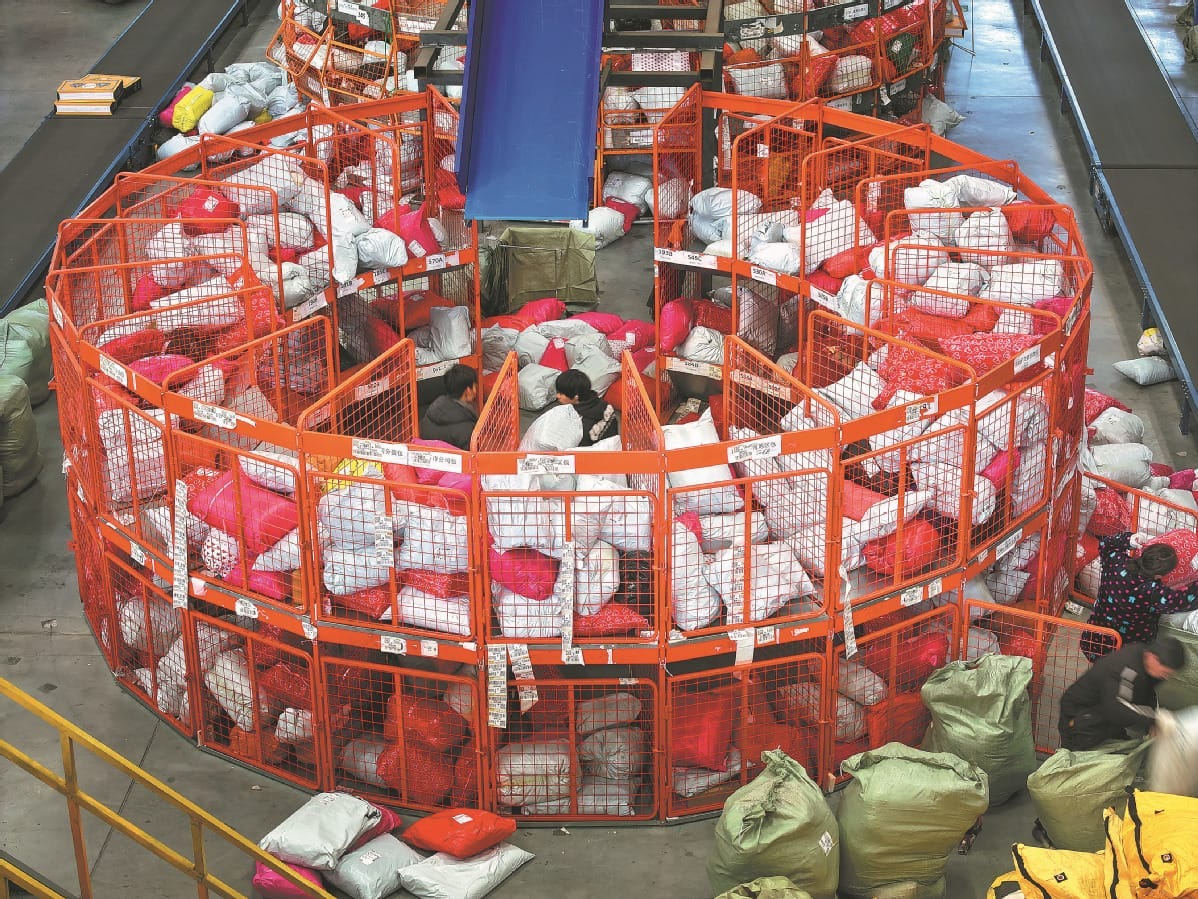
China Daily reports that China's postal delivery industry has become a target for espionage activities, according to the Ministry of State Security. The ministry highlighted three cases, including the leaking of classified materials, the shipment of dangerous chemical powders, and the introduction of invasive species via postal services. These threats underscore the growing risks to national security within this rapidly expanding industry. The public is urged to remain vigilant and report suspicious activities related to state secrets.
China And The World🌐
China and Vietnam Sign 14 Documents to Advance Practical Cooperation
CGTN reports that China and Vietnam have signed 14 cooperation agreements during a state visit by Vietnamese President To Lam to China. These agreements cover various sectors, including infrastructure connectivity, healthcare, customs, and media cooperation. Key projects include railway infrastructure and quarantine protocols for agricultural exports. The agreements signify progress in building a comprehensive strategic cooperative partnership between the two nations.
China, Fiji Agree to Strengthen Cooperation
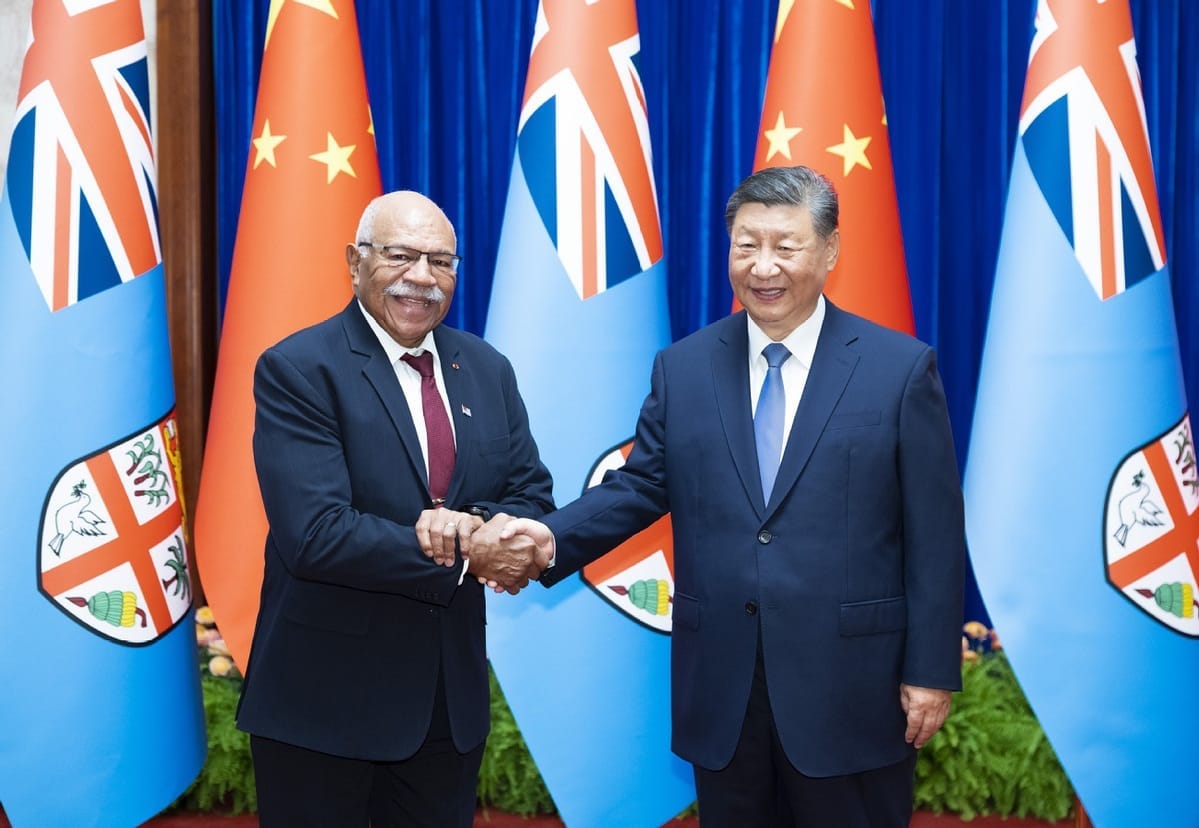
People's Daily Online reports that Chinese President Xi Jinping and Fijian Prime Minister Sitiveni Rabuka met in Beijing to discuss strengthening bilateral cooperation. The leaders highlighted the importance of their long-standing relationship, with Fiji being the first Pacific island nation to establish diplomatic ties with China. Xi expressed China's commitment to supporting Fiji's economic and social development, while Rabuka praised China's achievements in development and poverty alleviation.
Chinese Premier in Moscow to Promote Ties
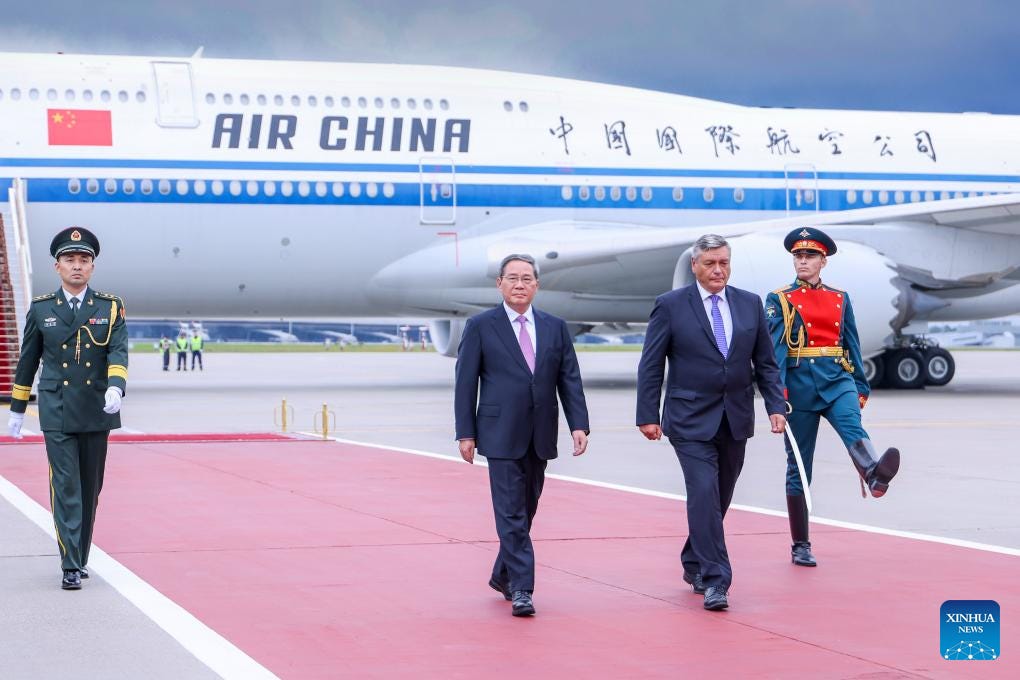
Xinhua reports that Chinese Premier Li Qiang arrived in Moscow to attend the 29th regular meeting between Chinese and Russian heads of government and for an official visit at the invitation of Russian Prime Minister Mikhail Mishustin. The visit aims to deepen bilateral cooperation and implement strategic agreements made by Presidents Xi Jinping and Vladimir Putin. This year marks the 75th anniversary of diplomatic ties between China and Russia, with ongoing collaboration in traditional and emerging sectors.
China and Belarus Pledge to Boost Agriculture, Freight Train Cooperation
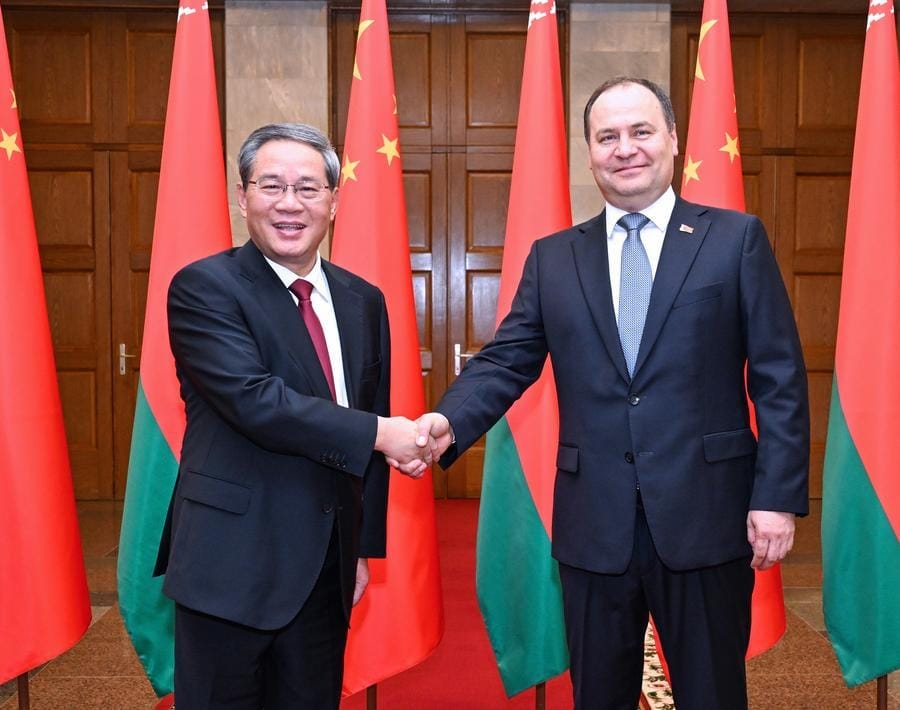
CGTN reports that China and Belarus have committed to enhancing cooperation in agriculture and the China-Europe Railway Express service. Following a meeting in Minsk between Chinese Premier Li Qiang and Belarusian Prime Minister Roman Golovchenko, the two nations agreed to strengthen investment in agriculture, expand market access for agricultural products, and improve infrastructure connectivity for the freight train service, ensuring the safety of the transport corridor.
Xi Says China Will Continue to Support NPC in Deepening Exchanges with IPU
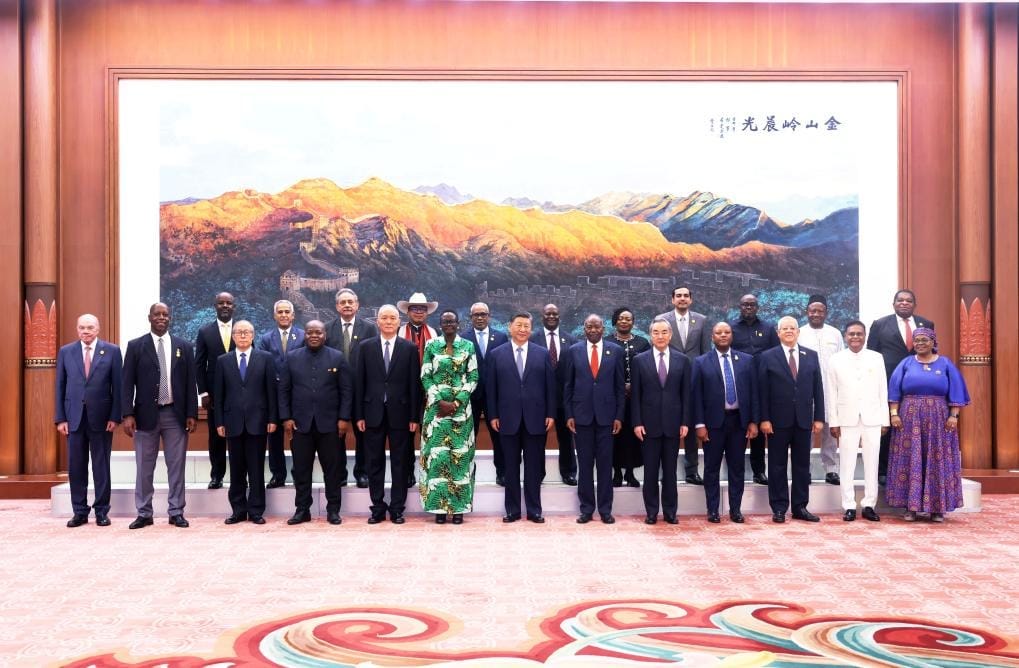
China.org reports that Chinese President Xi Jinping has reaffirmed China's commitment to supporting the National People's Congress (NPC) in enhancing cooperation with the Inter-Parliamentary Union (IPU). During a meeting with foreign parliamentary leaders in Beijing, Xi emphasized the importance of legislative exchanges in fostering state-to-state relations based on equality and mutual trust.
Türkiye Lauds Improvement in Relations with China After Long Stagnation
Nikkei Asia reports that Türkiye and China have seen a recent improvement in bilateral relations after years of stagnation, largely due to the sensitive issue of China's treatment of the Uyghur minority. The progress is highlighted by a $1 billion investment from Chinese EV manufacturer BYD in Turkey and discussions of reciprocal state visits between President Recep Tayyip Erdogan and Chinese President Xi Jinping. Despite lingering issues, such as the Uyghur situation, both nations are seeking to strengthen their economic and political ties.
Military Shows Off Missiles in Rare Public Drills
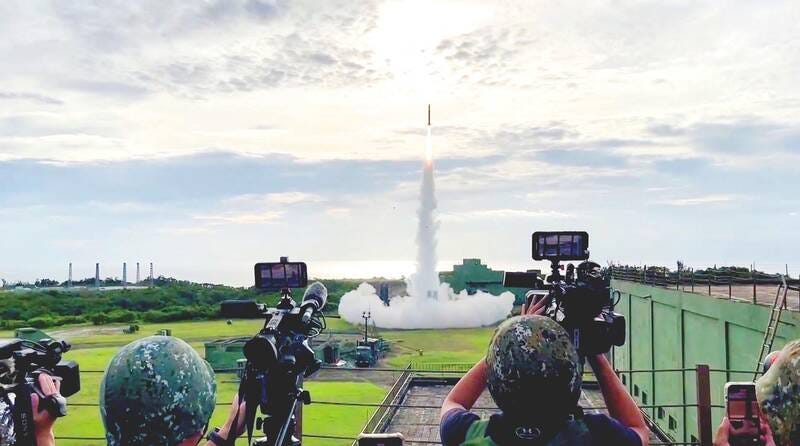
Taipei Times reports that Taiwan's military showcased its precision missile capabilities in a rare public drill, firing the indigenous Tien Kung III and US-made Patriot PAC-2 surface-to-air missiles at the Jiupeng Military Base in Pingtung County. The missiles successfully hit their targets. While local media speculated about the testing of the Hsiung Feng II-E surface-to-surface cruise missile, the military neither confirmed nor denied the reports, maintaining that all live-fire drills are part of the annual plan.
U.S. Warship Transits Taiwan Strait

Sean Lin reports in Focus Taiwan that the U.S. Arleigh Burke-class guided-missile destroyer USS Ralph Johnson transited the Taiwan Strait on Thursday, a move viewed as a demonstration of the U.S. commitment to freedom of navigation. Taiwan's Ministry of National Defense monitored the transit, observing no unusual activity. In response, China's People's Liberation Army (PLA) shadowed the vessel and criticised the U.S. for "trumpeting" the passage. The U.S. previously transited the strait on May 8.
China is discontented with the German Navy’s warships’ plans to pass through the Taiwan Strait
Newsweek reports that Beijing warned Germany not to deploy its warships through the strait between Taiwan and China and that China considers this to be interference in the country’s internal affairs. The German government has not yet made a final decision on the matter, and two German warships are awaiting orders from Berlin to sail next month through the 180-kilometer-wide Taiwan Strait that separates Taiwan and China.
Biden Approved Secret Nuclear Strategy Refocusing on Chinese Threat
The New York Times reports that President Biden approved a highly classified nuclear strategy in March 2024, marking a significant shift in U.S. deterrent strategy to focus on China's rapid nuclear expansion. The "Nuclear Employment Guidance" document, updated every four years, also prepares the U.S. for potential coordinated nuclear challenges from China, Russia, and North Korea. This strategy underscores the Pentagon's concern that China's nuclear capabilities will soon rival those of the U.S. and Russia.
US Clinical Trials in China Questioned by US Lawmakers
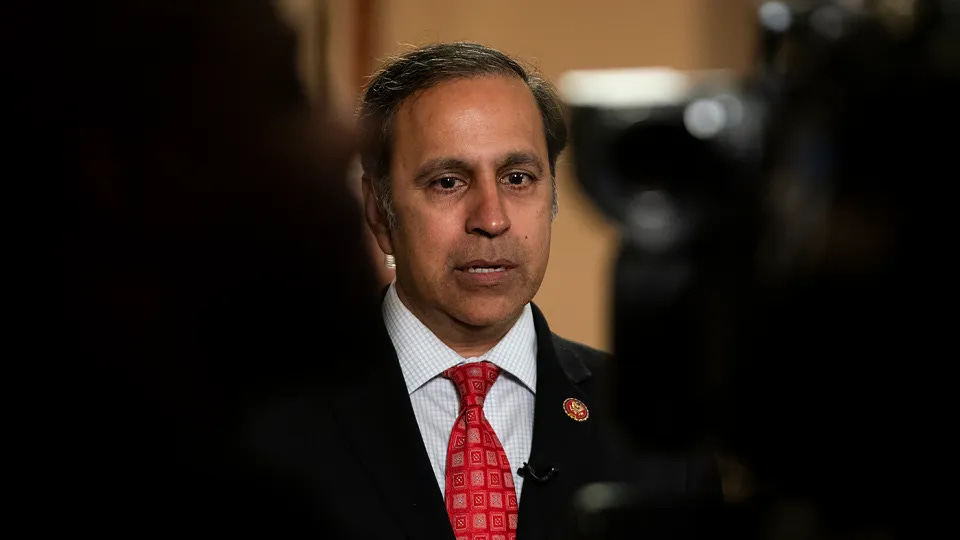
Alexandra Alper reports in Reuters that a bipartisan group of US lawmakers has urged the Biden administration to intensify scrutiny of clinical trials conducted by American companies in China. Concerns include the potential for intellectual property theft and the ethical implications of trials in Xinjiang, where Uyghurs may be forced to participate. The letter, sent to the FDA, reflects growing unease over China’s involvement in biotechnology and raises questions about collaborations with Chinese military-run hospitals. The FDA has not yet responded.
China, U.S. Hold 5th Meeting of Economic and Financial Working Groups

CGTN reports that China and the U.S. held their fifth meeting of the financial working group in Shanghai, co-chaired by Xuan Changneng of the People's Bank of China and Brent Neiman from the U.S. Department of the Treasury. The meeting covered topics including financial stability, monetary policies, cross-border payments, and sustainable finance. Both sides agreed to maintain communication and signed an agreement to enhance cooperation on financial stability.
Walmart’s $3.6 Billion JD.com Sale Fuels China Tech Slump
Bloomberg News reports that Walmart Inc. has raised approximately $3.6 billion by selling its stake in JD.com, marking the end of their eight-year partnership. The sale, conducted at an 11% discount, triggered a broader selloff in Chinese tech stocks, with JD.com’s shares falling up to 12%. Walmart is refocusing its strategy in China, shifting investments toward its own operations like Sam’s Club and hypermarkets amid a challenging economic environment.
Chinese Cement Firms Look to African Construction Boom Amid Domestic Woes
Jevans Nyabiage writes in SCMP that Chinese cement producers are increasingly turning to Africa for growth opportunities as China's domestic market struggles with a property crisis and slow economic recovery. Companies like West China Cement Limited have seen higher prices and profits in African countries such as Ethiopia, the Democratic Republic of the Congo (DRC), and Mozambique. These African operations are becoming significant contributors to the companies' overall profits, with further expansion planned for 2024 and beyond.
Video Game "Black Myth: Wukong" Takes Global Players on Journey Beyond West

Xinhua reports that "Black Myth: Wukong," a highly-anticipated video game inspired by the Chinese classic "Journey to the West," has officially launched worldwide. Developed by Game Science, the game quickly topped global charts and has garnered praise for its blend of traditional Chinese culture and modern gaming aesthetics. This release marks a significant milestone for Chinese developers in the global triple-A gaming market, traditionally dominated by Western titles.
Tech🧑💻 in China
Chinese self-driving startup WeRide delays U.S. IPO
Jack Stone Truitt writes in Nikkei Asia that Chinese autonomous driving company WeRide has postponed its planned initial public offering (IPO) on Nasdaq, which was anticipated to be the largest debut for a Chinese firm in over three years. The delay is due to prolonged documentation processes. WeRide's postponement follows reports of potential U.S. restrictions on Chinese software in autonomous vehicles. The company, known for its robotaxis, operates in 30 cities across seven countries.
Huawei's Polar Code Beats Nato Protocol in South China Sea Submarine Communication Test
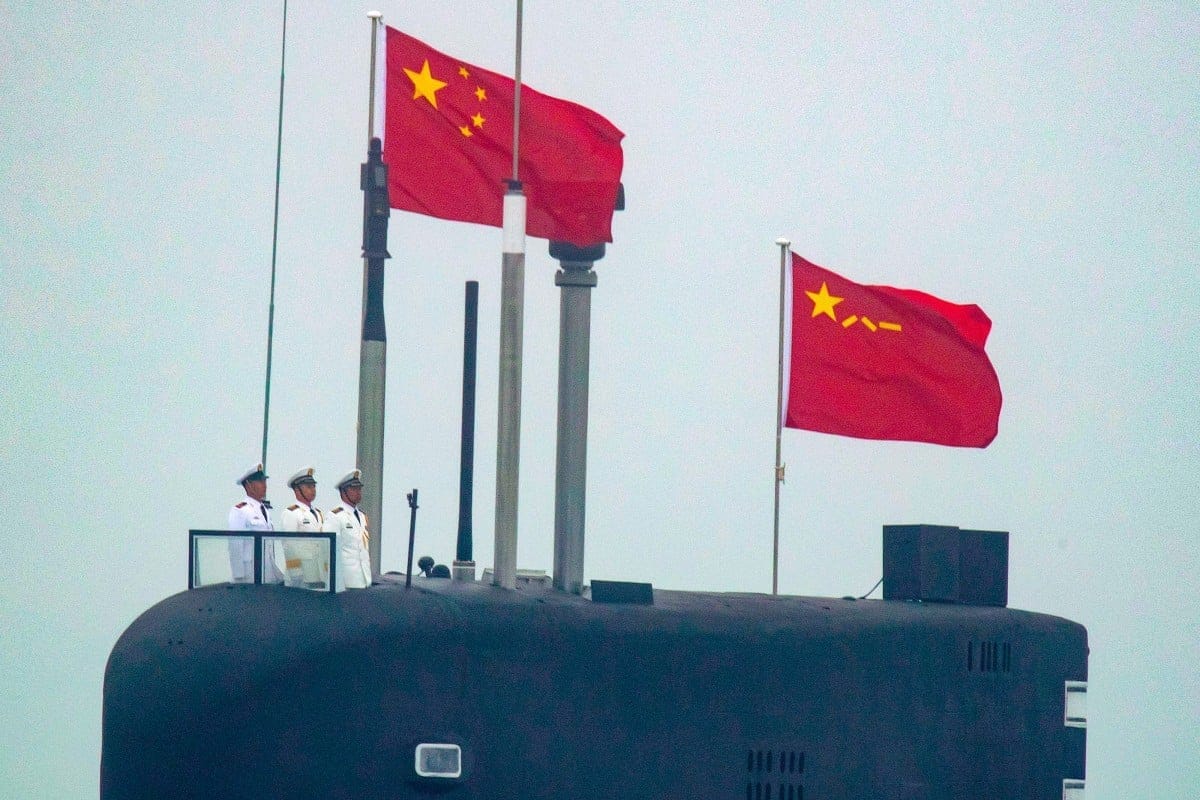
Stephen Chen writes in SCMP that Chinese scientists, collaborating with the People’s Liberation Army (PLA), achieved a record in underwater communication using Huawei’s polar code technology. During tests in the South China Sea, signals were transmitted over 30km, surpassing the previous record held by Nato’s JANUS protocol. This advancement underscores China's growing technological dominance in underwater communication, with implications for military and geopolitical strategies.
Baidu’s Sales Stall as It Struggles to Cash in on AI
Bloomberg reports that Baidu Inc. experienced a slight revenue decline for Q2 2024, with sales dipping 0.4% to 33.9 billion yuan, missing projections. Despite significant investments in AI, including its "Ernie" large language model, Baidu faces challenges in monetising these ventures amid fierce competition from Alibaba, Tencent, and ByteDance. The ongoing AI price war and China's economic downturn further strain Baidu's efforts to reduce its reliance on search advertising and expand its AI-driven revenues.
Inequality may brew ‘Social Volcano’ under Xi’s China
Written By Farheen, Policy & Trust Analyst
China has pulled about 800 million people from poverty during the last forty years. Although China's economic success is sometimes highlighted by outstanding GDP growth and technical achievements, a major problem that usually goes unnoticed is a regular outflow of rich people. This phenomena reveals a fundamental conflict in China's developmental model: the social consequences of unequal prosperity within its distinctive political and economic framework.

The numbers present a clear picture of discrepancy. Even with significant poverty reduction, China's Gini coefficient—a measure of income inequality—hangs around 0.46, among the most unequal nations in the world. With their disproportionate 40% of the nation's wealth, the richest 10% highlight the difference separating the wealthy elite from the rest of the population. Along with economic levels, this difference shows up in access to healthcare, education, and social mobility. A legacy of China's planned economy, the Hukou system restricts rural migrants' access to social services in metropolitan areas, consequently aggravating this gap.
Research reveals concerning convergence of inequality across income, consumption, and wealth in China between 1988 and 2018. This convergence implies a probable standstill in social mobility as the same households are gradually likely to occupy the top levels of all three variables. Although median income rose by 7% year throughout this period, the rise was more evident at the top end of the distribution, hence widening the difference. Consumption and wealth follow this trend as well; the wealthiest homes see far more increases.
There are huge social consequences from this economic segregation. Although China's government promotes the ideas of a "harmonious society," actual conditions reveal otherwise. The growing wealth disparity drives social unrest, compromises confidence in institutions, and generates anger and instability. Studies indicate that rather than actual poverty levels, perceived inequality—often exacerbated by corruption and uneven access to opportunities—may be more harmful to social cohesiveness. This is especially true for groups like young males, who, based on research, are more sensitive to relative deprivation and status, therefore more prone to experience irritation and rage against little upward mobility.

One obvious outcome of these fears is the exodus of China's affluent citizens out of the country. Although financial incentives certainly play a part, many immigrants list social mobility, corruption, and a perceived lack of justice as the main reasons they decided to leave. Howard French's "voting with their feet" phenomenon—observed in Foreign Policy across several socioeconomic levels—showcases a deep-seated discontent with the current system even among those who have apparently profited from it. This trend highlights how closely China's political structure and economic development connect. Although China's fast economic liberalization has pulled millions of people out of poverty, it has also produced a system whereby political influence and ties often take front stage over quality. Such restrictions on people capacity to express complaints or push for systematic change limits their freedom of expression and assembly, therefore aggravating this problem.
In his 2020 paper on the political consequences of inequality in Chinese society, Harvard's sociology Prof. Lei underlined this increasing conflict. He contends that the circumstances are ready for a “Social volcano” —an explosion of social movements, class strife, violent revolt, or perhaps even a revolution. Although this forecast was discounted in 2010, the present migration of wealthy people implies that underlying societal constraints have not relaxed. He also saw a sharp increase in news, posts, and more about inequality post 2009.

Sensibly aware of the possibility for social upheaval, the Chinese government has taken a variety of measures meant to reduce inequality, including investments in rural infrastructure, focused poverty-alleviating programs, and campaigns for fair access to education and medicine. These initiatives, however, can seem scattered and inadequate in tackling the underlying causes of inequality.
Furthermore, the government's tight control over information and its intolerance of dissent foster a climate of fear and self-censorship, hindering open dialogue and critical analysis of these complex issues. The lack of transparency surrounding wealth distribution, coupled with the pervasive influence of money and connections, fuels public cynicism and further erodes trust in institutions.
This exodus of affluence begs a critical question, as posed by Howard French in Foreign Policy: "The question is whether this matters to the country’s leadership, or better put: At what point would an exodus of people be deemed a crisis or emergency?”
Artificial intelligence is losing hype
Published by The Economist, Summarised by De/Cypher Team
In "Artificial Intelligence is Losing Hype," The Economist explores the waning enthusiasm for AI among investors, reflecting in a recent 10% drop in the share prices of major Western firms involved in AI. Despite the early promise and substantial investment, AI adoption among American companies has stagnated at around 5%. The article references the "hype cycle," where initial excitement and overinvestment in new technologies lead to disillusionment before potential mainstream adoption. However, AI's trajectory might differ, as it has seen repeated cycles of hype and despair without substantial breakthroughs. The article notes that many technologies do not follow the hype cycle and that a significant portion of those that enter the "trough of disillusionment" never recover. The future of AI remains uncertain, with the need for tangible economic benefits yet to be demonstrated. The hype cycle, therefore, may not be the best predictor of AI's future; instead, it might be more apt to consider the adage "easy come, easy go" when assessing its long-term impact.
Read the article here: The Economist

Rest of World
HEADLINES
Friday
Venezuela’s Supreme Court has backed President Nicolás Maduro’s claims that he won last month’s presidential election and said voting tallies published online showing he lost by a landslide were forged. (AP)

North Korea has condemned the planned U.S. sale of Apache helicopters to South Korea, calling it a provocative action that heightens regional security tensions. In response, Pyongyang vows to enhance its self-defence capabilities to counter the perceived threat. (Arab News)
Russian Ambassador Anatoly Antonov has expressed concerns that the U.S. may eventually lift all restrictions on the use of weapons supplied to Ukraine. Antonov described recent U.S. comments about limiting weapon use to defensive operations as potentially leading to broader use. (Reuters)
Young volunteers in Myanmar are undergoing intense military training with the Bamar People's Liberation Army (BPLA) in the jungles of Karen State, aiming to overthrow the military junta. This rigorous training, which includes both combat and political education, reflects their commitment to resisting the 2021 military coup. (CNA)
Thursday
Indonesia's parliament postponed ratifying changes to an elections law on Thursday amid protests in multiple cities, following outcry over legislation seen to strengthen the political influence of outgoing President Joko Widodo. (The Jakarta Post)
Brazil will begin imposing restrictions on the entry of some foreigners from Asia who use the country as a launching point to migrate to the United States and Canada, the justice ministry’s press office said Wednesday. (AP)
Nepal’s government decided Thursday to lift the ban it imposed on the video-sharing app TikTok last November for disrupting “social harmony.” (SCMP)
Thailand confirmed on Thursday (Aug 22) Asia's first known case of a new, deadlier strain of mpox in a patient who had travelled to the country from Africa. (CNA)
Wednesday
Thailand's economy is nearly in crisis due to declining exports and uncompetitive manufacturing, the country's caretaker finance minister said on Wednesday. (New Strait Times)
Popular Thai politician Pita Limjaroenrat is returning to Harvard University, where he will take up a fellowship and share his lessons from a period of political turmoil that saw his party win a general election, only to be disbanded a year later. (The Strait Times)
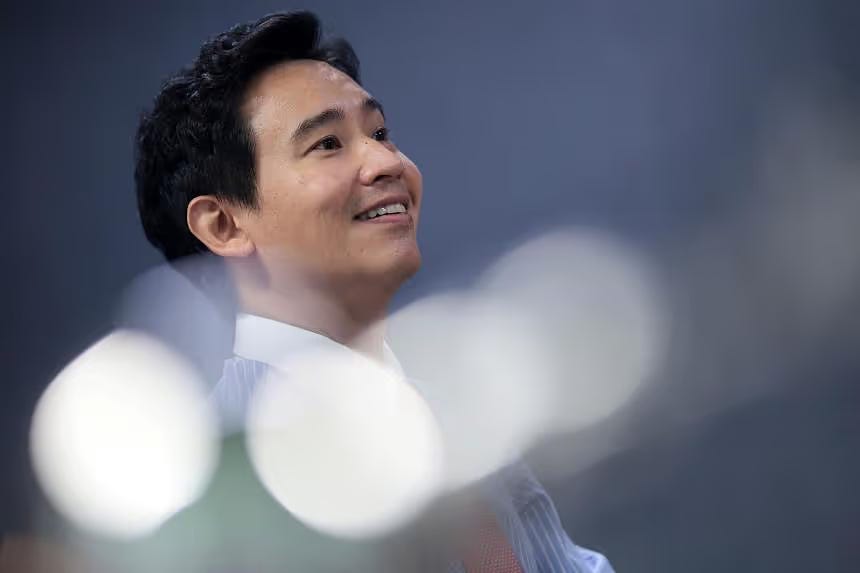
President Ranil Wickremesinghe yesterday extended the biggest boost for tourism by offering 30-day visas free-of-charge to nationals from 35 countries from 1 October. (Daily Mirror LK)
Former Environment Minister Shinjiro Koizumi has decided to run in the Liberal Democratic Party’s presidential election, to be held on Sep. 27, sources report. (The Japan News)
Tuesday
More than 200 South Korean and United States fighter jets are due to fly around the clock for five days this week in what would mark the largest number of sorties flown in training by the allies. (CNA)
Australia and Indonesia unveiled a new defence agreement, pledging closer cooperation in the contested Asia-Pacific region as a new leader prepares to take over in Jakarta. (The Jakarta Post)
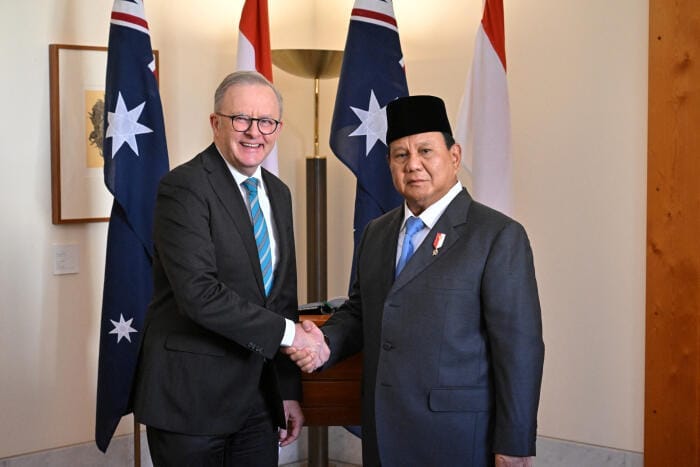
Japan’s ruling party said Tuesday it will hold a vote on Sept. 27 to choose its new leader after Prime Minister Fumio Kishida’s surprise announcement that he will be stepping down. (AP)
The Philippines has agreed to a request by the United States to temporarily host a U.S. immigrant visa processing center for a limited number of Afghan nationals aspiring to resettle in America. (Yahoo)
---


